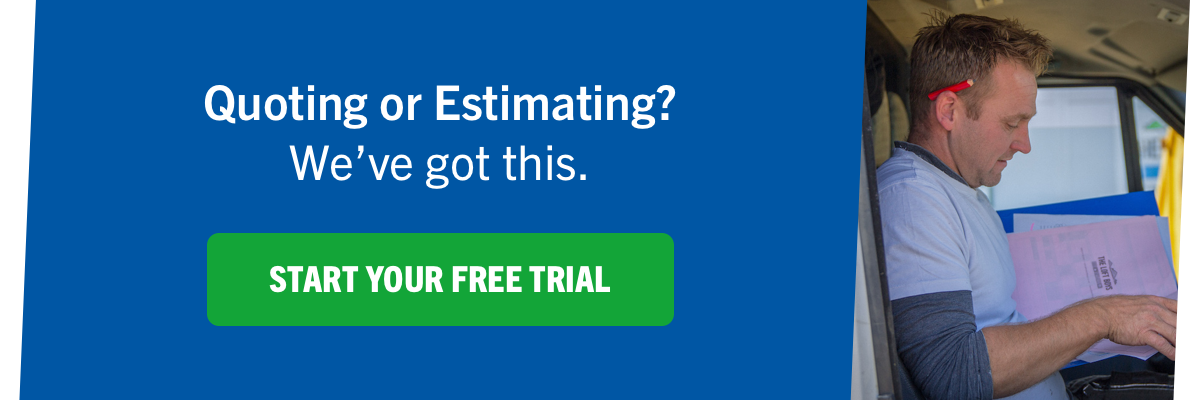Why should I follow up my plumbers’ quote?
It might feel as though you’re ‘badgering’ your potential customer, but in reality a well timed and well thought out follow up can help you do exactly what you need it to do – win you more work.
How?
It helps build trust with your potential customer: by showing that you’re willing to help out with any questions they may have and by being structured organised makes you look more professional and more trust-worthy.
Plus you’ve spent time and energy pricing the quote up accurately and to the best of your ability – so why not go that extra mile and make it win your that job!

Here’s some tips on how to help you do exactly that:
1. Know when your quote was sent
Make a note and keep it in your diary. It’s important to know how long has passed since you sent it, then you know exactly when to chase it – it’s often timing that can help you win that customer round. Also make a note if they have someone else coming round to size up the job as well, then you know how long you need to leave them after that. If you’re not sure ask, and explain it’s because you want to give them enough time to mull it over and not chase up 5 minutes after someone else has left. Most customers will appreciate your forethought.
2. Let your customer know when you’ll be following up within the quote or when presenting the quote.
“We’ll be in touch in a week to see if there’s anything else you need – or to answer any questions you have” – this way they not exactly when to expect it, and they’re not put on the spot if you ring at an unknown time. Plus if you ring/chase up exactly when you say you will it also helps show consistency and professionalism.
3. Find out the preferred time and method for contacting your customer.
Post, email, phone, SMS? What’s the best time to call – evening, weekend? Let them make the choice and keep a track of this in an online or offline address book.
4. Set yourself a reminder to for 7 or 14 days after you send the quote.
Decide how long before want to follow-up and make a reminder. If you’re busy, time slips by and before you know it, weeks have passed. Set yourself reminders and take away the worry about following up!
5. Calling customer: don’t chase, ask if you can help.
Ask your customer if they need anything else or want any help understanding your quote, don’t pressurise and keep it neutral. Most customers won’t know much about the technical aspects of the job you’re doing, so they’ll appreciate any help you can offer.
6. Keep notes on all your conversations
You have a lot on your plate – don’t add to it by trying to remember every facet of every conversation… keep track of key conversations and things that have been agreed. It’ll stop you from getting stressed and possibly from letting your customer down.
7. Power of the post!
Send a follow-up to your original quote with testimonials and your full terms: most customers appreciate the chance to mull it over and read through, rather than having a conversation. So use this to your advantage!
If you’re using software for estimating, this could already be included.
Bonus: Win or lose… get feedback!
Regardless of yes or no decision, there’s things you can learn to improve your next quote: what could you have changed to have won the work -or- what would have helped them make up their mind quicker? Always learn – you never know it could be the simplest thing that you need to change and you’ll find the work flowing in!


